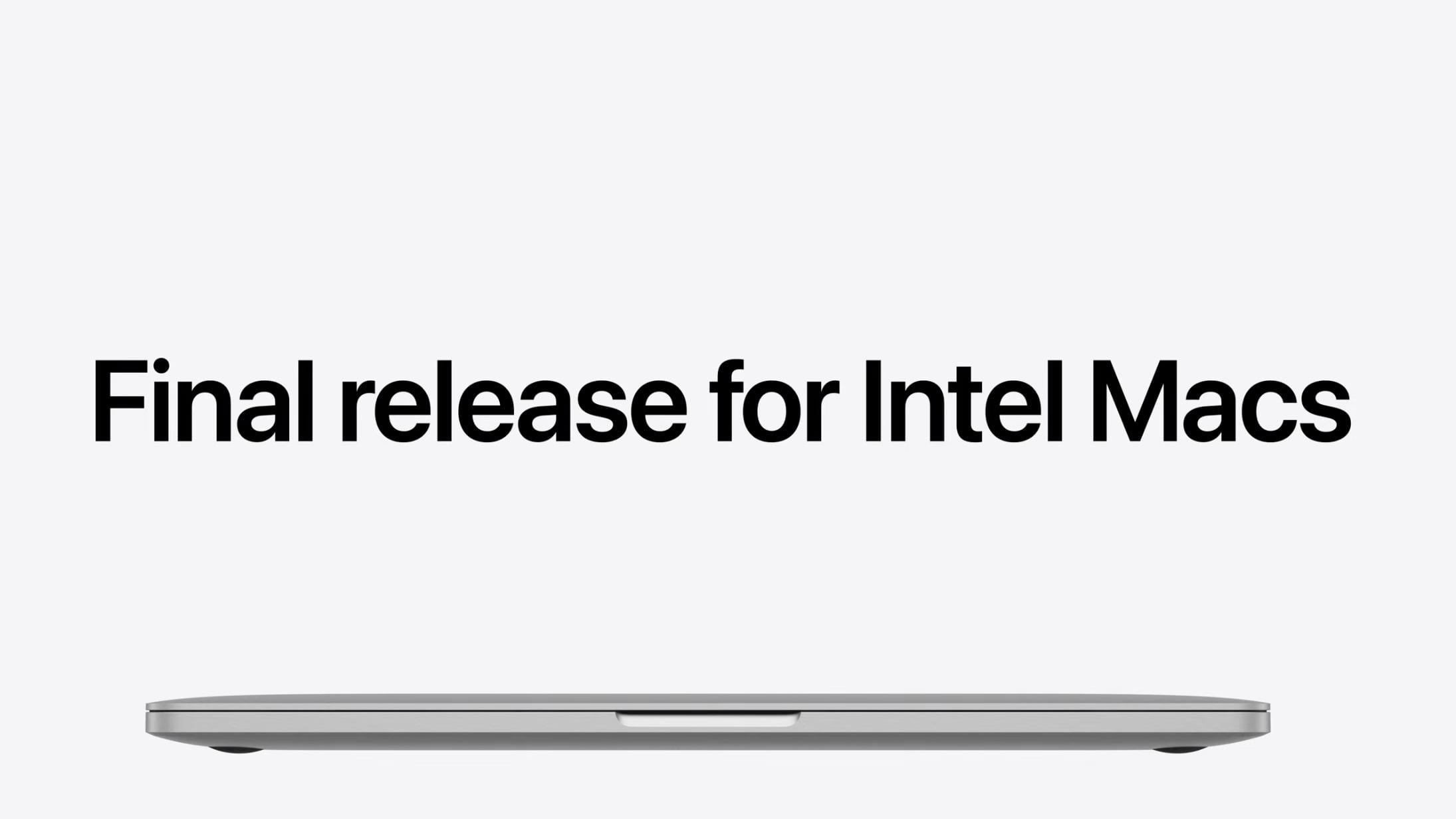Ars Technica did a full analysis of when it's likely that Apple will drop support for Intel Macs.
Nearly 20 years of data show how Intel Macs are faring as Apple switches chips.

arstechnica.com
Reading the comments on the article, this one from someone who claims to be a former Apple employee is illuminating:
".... The other problem with supporting old machines is that you need a supply of old machines to test the software on. If they have been out of production a while you can’t exactly just buy them new from Amazon, or get them in bulk from eBay. Apple doesn’t make them...."
Happened upon this thread again. Thumbs up for the article link--those bar graphs showing years of support were nice. I particularly liked that they calculated the averages based on both the model introduction date and model discontinuation date, as well as based on both active updates with the current OS and security-only support. Thus they covered all four combinations. It woud have been nice if they added range bars, though.
But the comment from the claimed Apple employee doesn't add up for me. He's speaking as though they need to actively source older machines for testing if they want to continue to support them in the next OS, and finding these is a challenge. That doesn't make sense, since the very fact that these machines are currently supported means Apple does have them. The only way they wouldn't is if they made a decision to actively dispose of them. And it not like Apple has so many Mac models that storage space would be an issue on the Cupertino campus.
[Remember the decision being made is whether to continue support for machines that are supported now, not whether to add support for even older machines not currently supported.]
And then the employee says this:
"Dropping machines is really just recognition that Apple doesn’t have the engineering bandwidth to support therm. Apple still runs incredibly (too) lean on engineering and supporting these things would mean that other bugs and security issues don’t get fixed. ."
OK, but historically they've supported Macs going back 6-7+ years even when they were a much smaller company and sold nearly as many different SKU's. So why would it suddenly be a challenge for them to support a large test cluster now when they were able to support a similarly large test cluster when the Mac division was much smaller?
I'm not saying there aren't engineering reasons for Apple to want to reduce its support duration, but this person's arguments have too many holes.
Something like this would have made more sense to me:
"MacOS has become so large and complex that it takes many more person-hours per SKU to verify support than it used to, and this increases every year. Even with that, Apple could probably have maintained its 6-7+ year support history, because the Mac division is much larger and thus has substantially more resources than it used to. However, that's not possible when you add the complexity of supporting two different architectures. Thus, for the transition, Apple will likely have to reduce its years of support temporarily. Once everything is purely on AS, it should be able to re-extend years of support back to historical levels."



